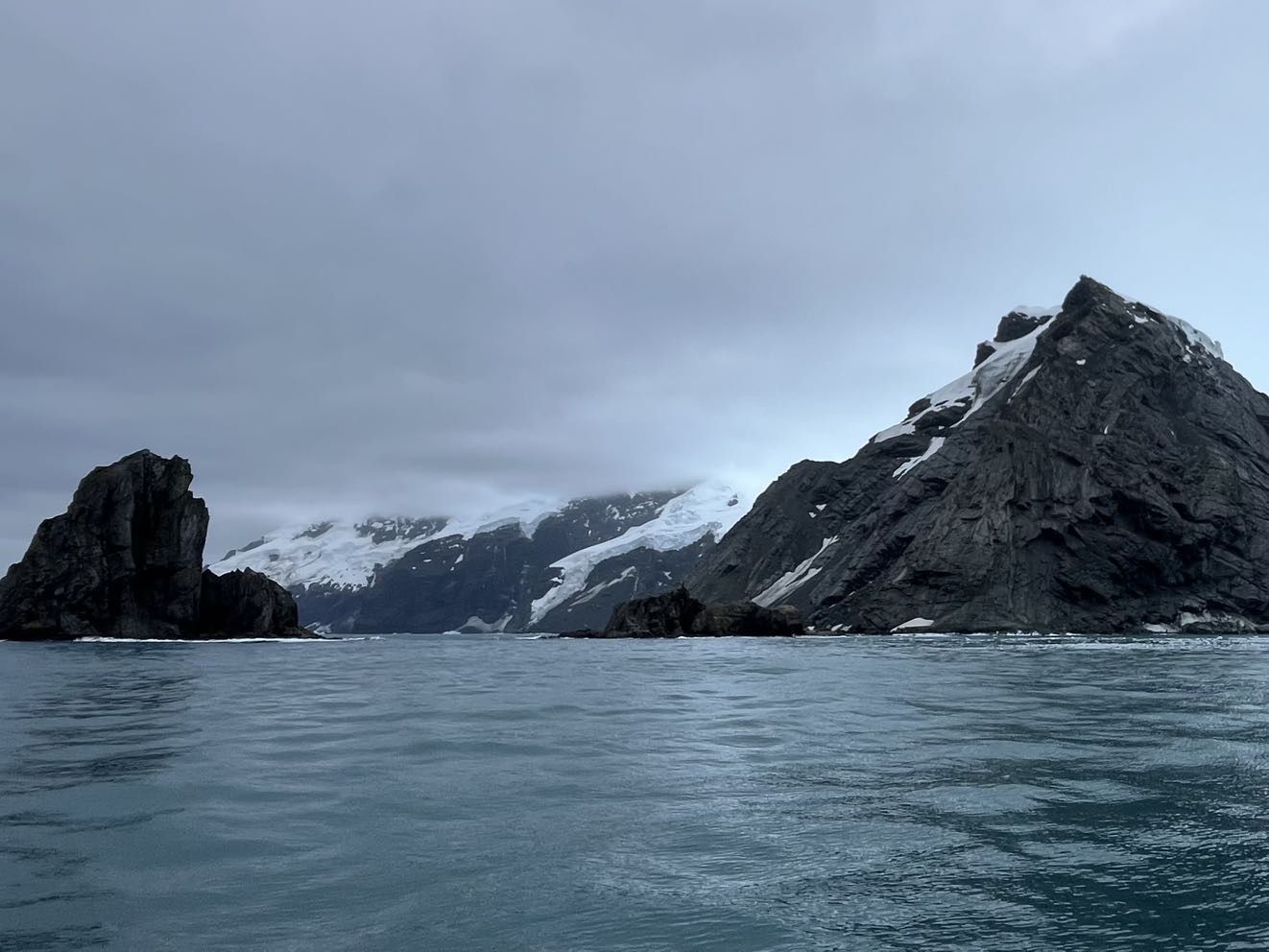As I write these lines, Elephant Island is already moving away in the wake of the Selma.
Today, at around five o’clock in the morning, our destination emerged dimly from the darkness of the night. At first all we could see was the bright glow of a glacier, but a little later we could also make out the first land masses in the blackness. Shortly afterwards – a magical moment – the rising sun emerged from the ocean as a glowing orange ball right next to the tip of Cape Yelcho.
What a welcome! Here in this place, the destination of our journey. Or the starting point – however you look at it. This is the place why we are here, the place where it all began. The place that has been haunting my dreams for many years, that was the reason for looking for a suitable boat two years ago, a skipper and people who were also enthusiastic about the idea of sailing here. And now we have actually arrived here on Elephant Island.
This and much more goes through my mind as we sail along the north coast after passing Cape Yelcho and the Seal Islands, which protrude from the sea like the pointed teeth of a monster. I stand on deck, lost in thought. The cloud base is high enough, the island passes us by. Nothing but rock and glaciers, barrenness and exposure.
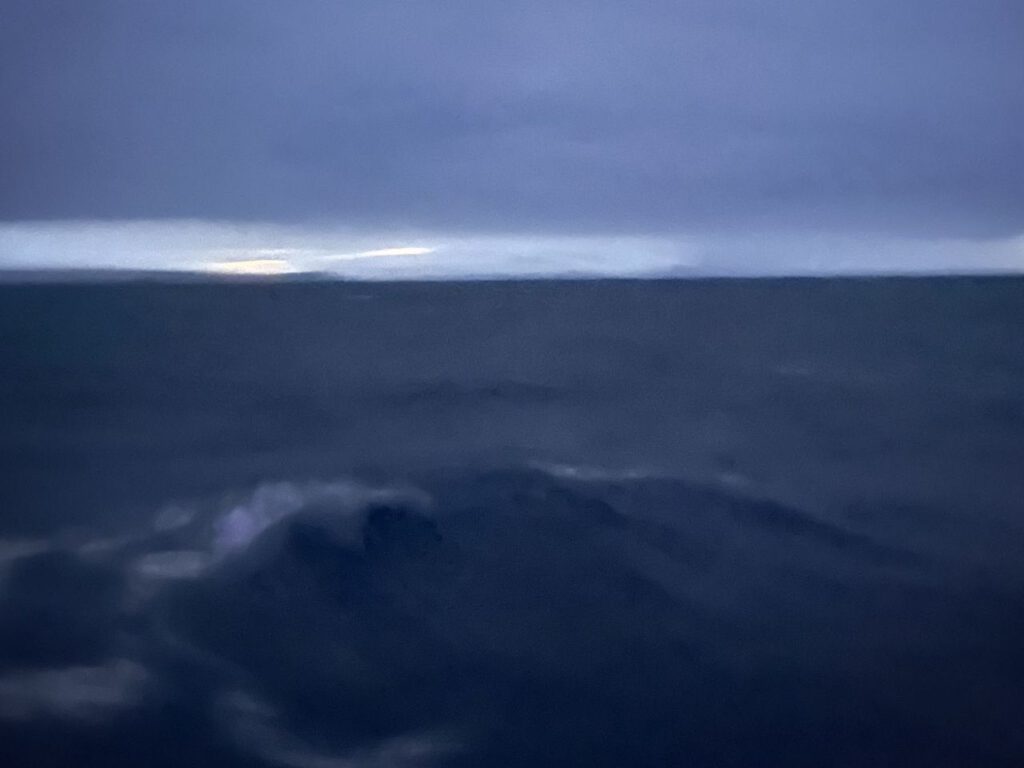
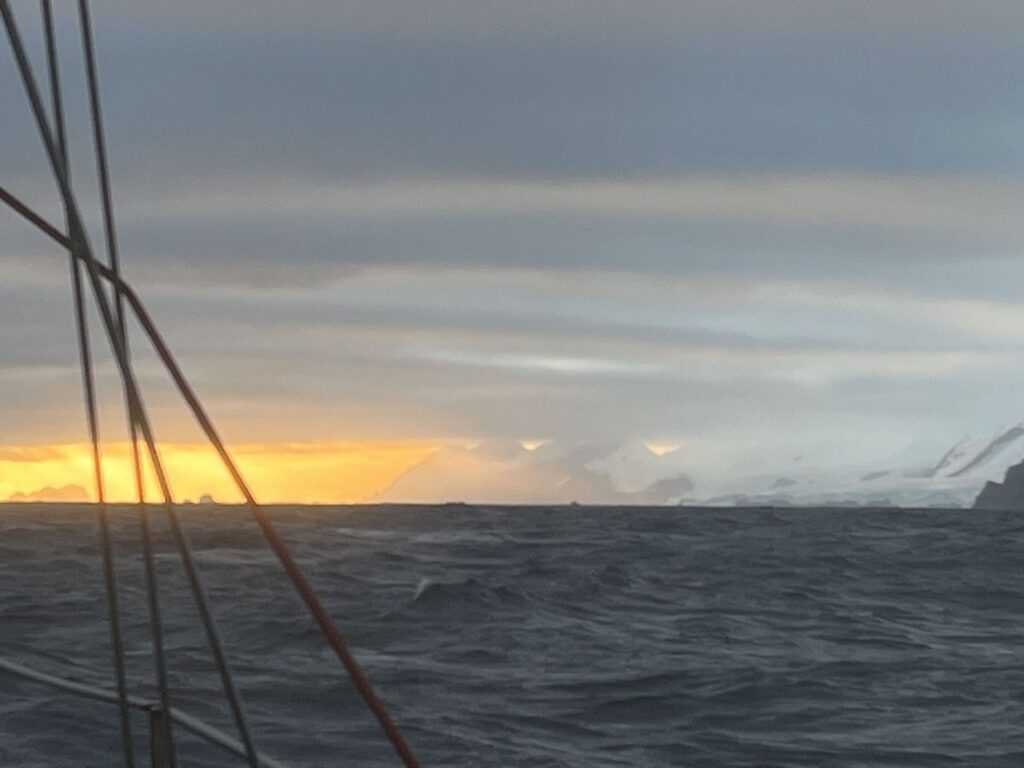
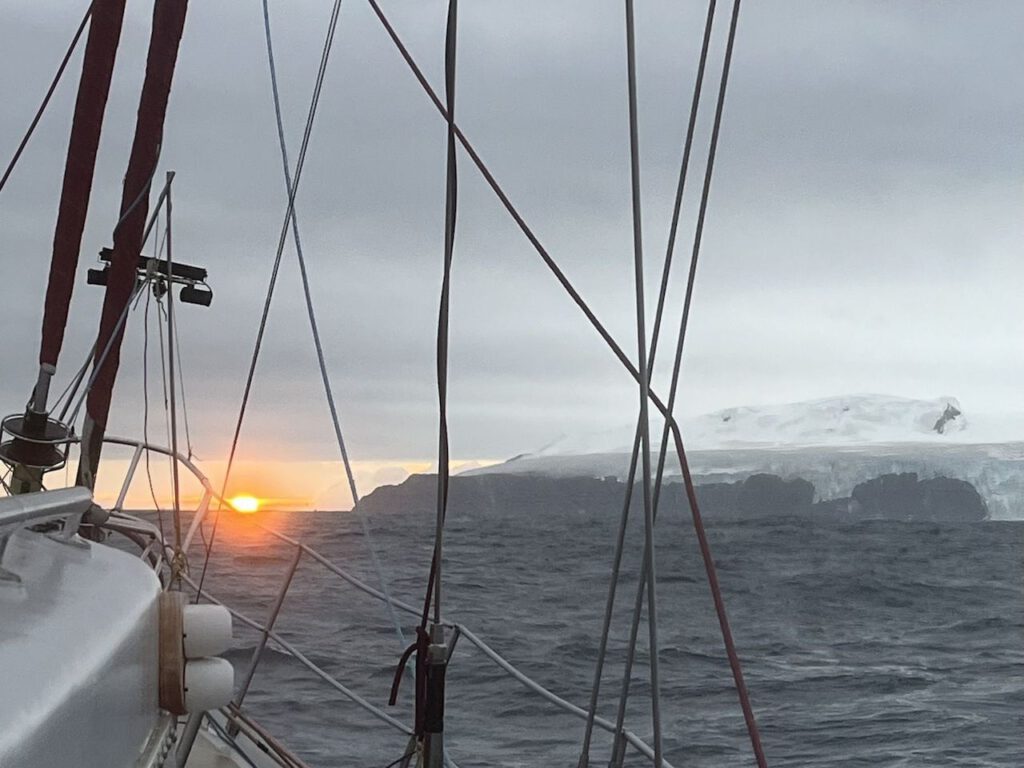
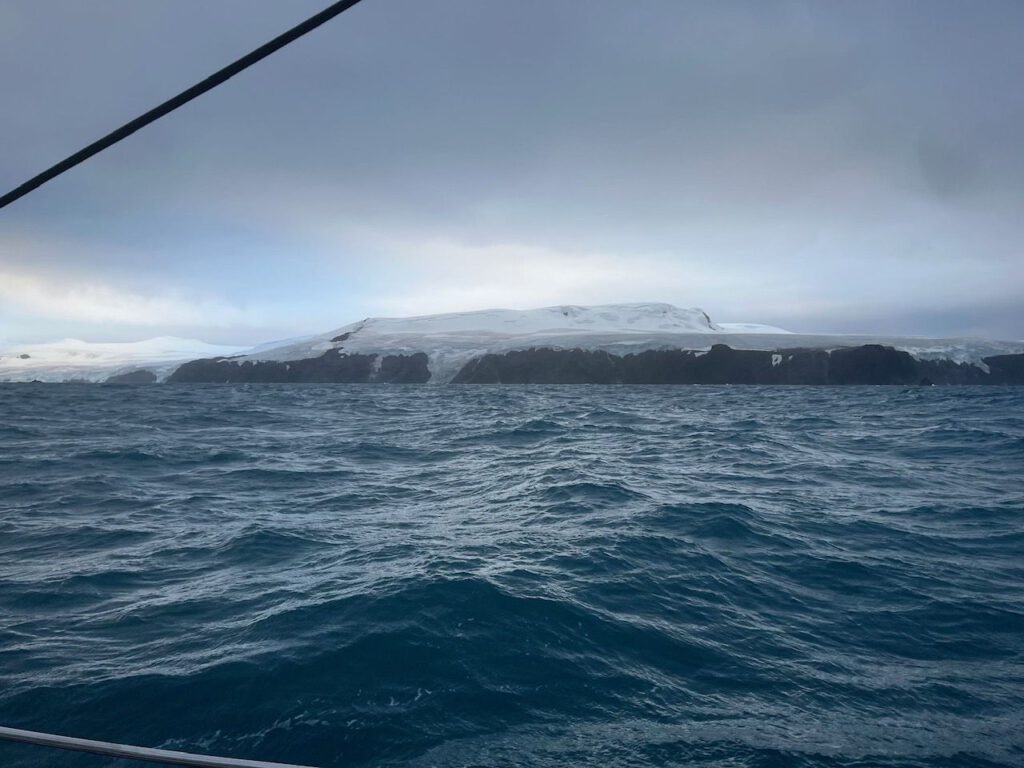
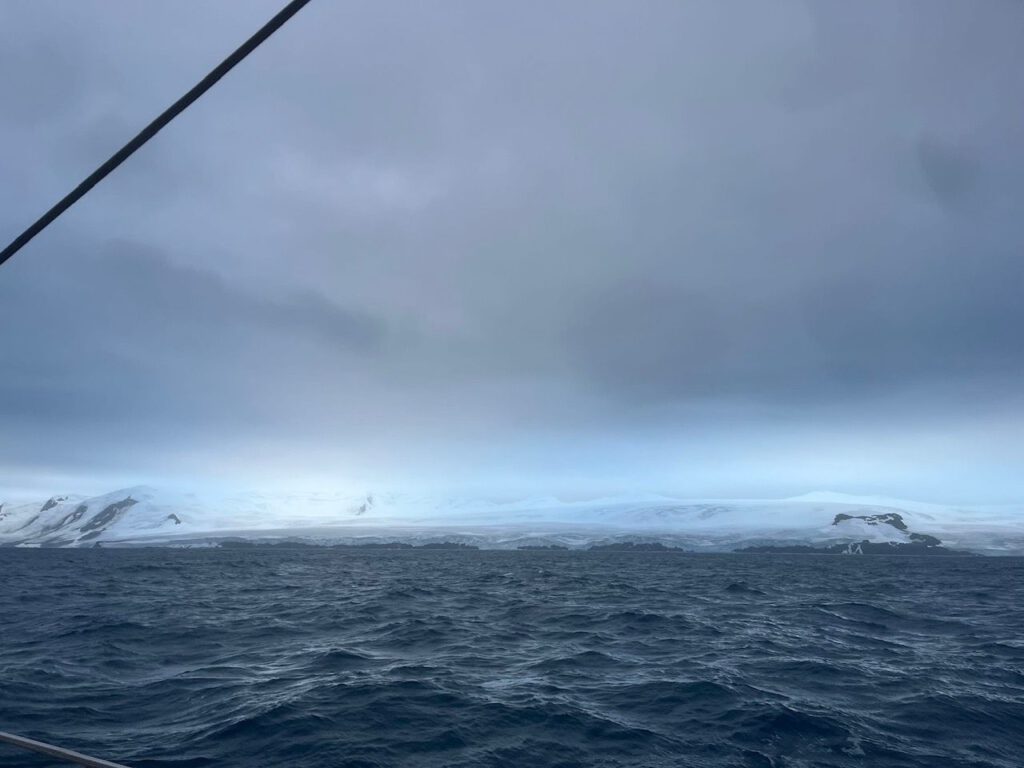
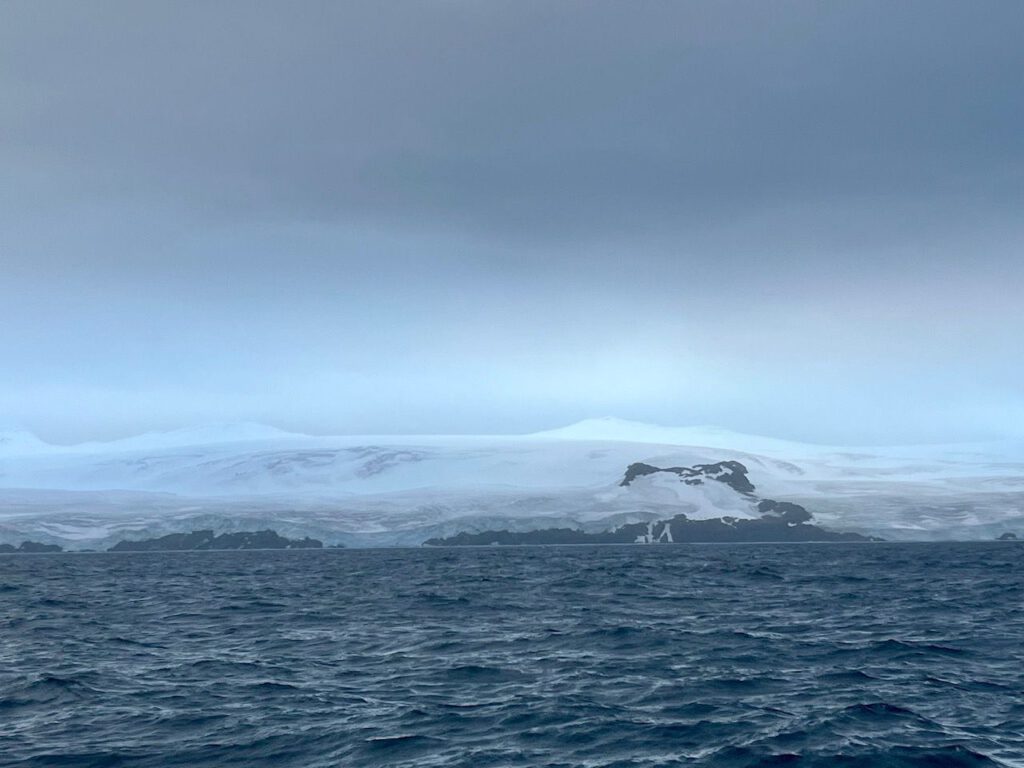
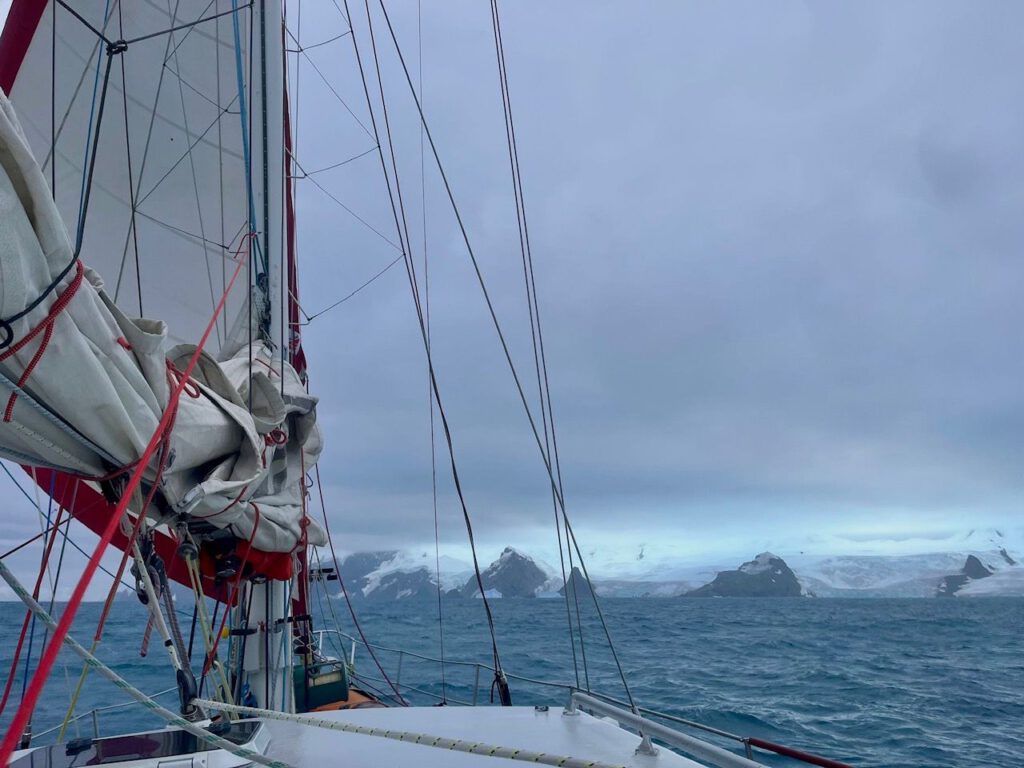
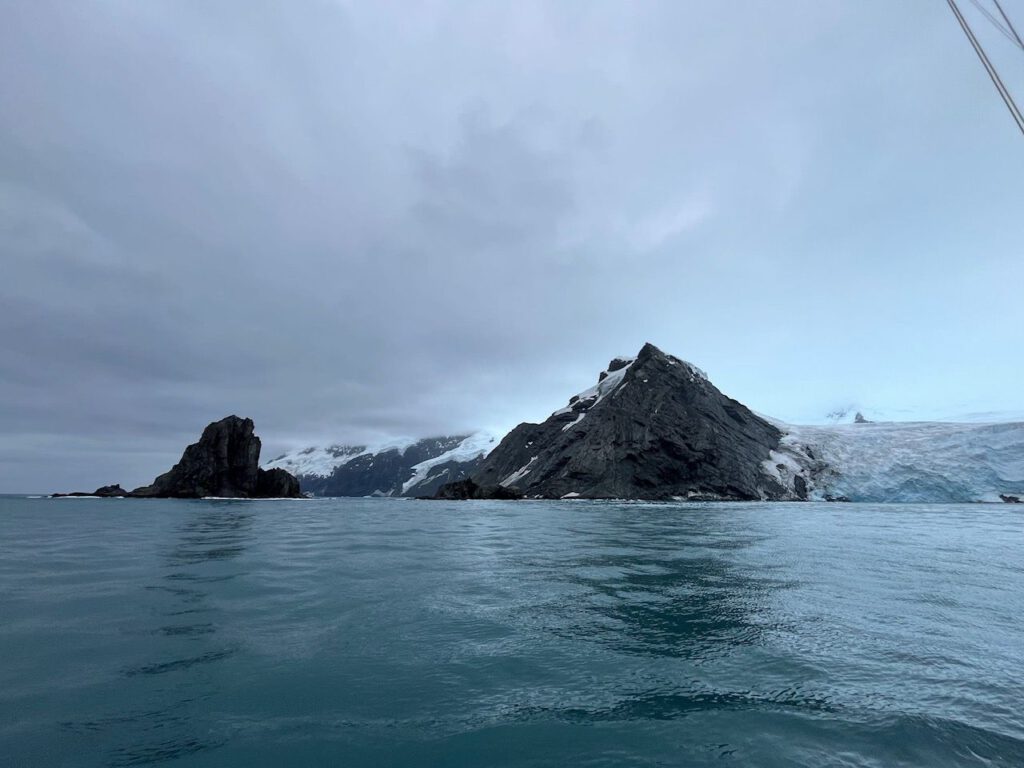
It is still 15 miles to Point Wild, the place where Ernest Shackleton and the crew of the ice-crushed and sunken Endurance sought refuge. They had rowed for five days through the stormy, icy Weddell Sea in their three lifeboats after having to abandon their camp on the melting, cracking ice in April 1916. Exhausted, the 28 men had solid ground under their feet again for the first time after 497 days at sea and sea ice at Cape Valentine in East Elephant Island. Solid ground that nevertheless meant neither protection nor any prospect of rescue from outside, just like Point Wild, which Shackleton chose as the location for setting up camp a little later. A few days later, on April 24, he left the camp with five other men and the James Caird, the least desolate of the three lifeboats, to seek help in South Georgia, 800 nautical miles away.
The remaining 22 men stayed behind under the care and leadership of Frank Wild, built a makeshift dwelling from the remaining two boats and waited there, fighting for their survival, for another four hard winter months for a rescue that seemed almost impossible.
When we reach Point Wild, our eyes scan the coastline in search of this place. From a distance, from close up, with the aid of binoculars and the zoom lens of the camera. In vain: there seems to be no place there. Even up close, there is only a narrow strip of black, stony beach before a high rock face rises up steeply behind it. There is no way forward to the left or right either – glaciers limit the length here. In the meantime, the glacier, whose huge front was still directly in front of the rock face at that time, has retreated several hundred meters.
It is high tide, but even at low tide, this stretch remains just a tiny, towel-sized beach a few meters wide. Barren, rocky, merciless and at the mercy of the elements. And yet this is the right place for us.
As hard as we try, even with the knowledge of this story, the reports of Shackleton and other expedition members … it seems unbelievable. Even the thought of having to spend just one night here on the few meters of rock between the wild ocean and glaciated rock is one that you’d rather quickly push aside. It is impossible to even begin to imagine what it must have meant to spend four cold, dark months here. 22 exhausted and exhausted men in a makeshift dwelling made of two small upturned open boats. After the sinking of the Endurance, they had already endured a 15-month, exhausting and desperate odyssey in and on the ice. Who – to be honest – could hardly have hoped that Shackleton, Worsley and Co. would succeed in their daring coup to reach South Georgia and bring possible help. It is probably thanks to an almost inhuman will to survive, and not least to Frank Wild, that all 22 men survived and came through this time physically and mentally.
Wind and high swell crash directly onto the coast, the Southern Ocean hits the coast, which is dangerously dotted with numerous offshore rocks, unchecked. White spray breaks high and wildly foaming on the dark rocks. The conditions today are the same as they almost always are here: landing is not possible. Not even for us. Unfortunately.
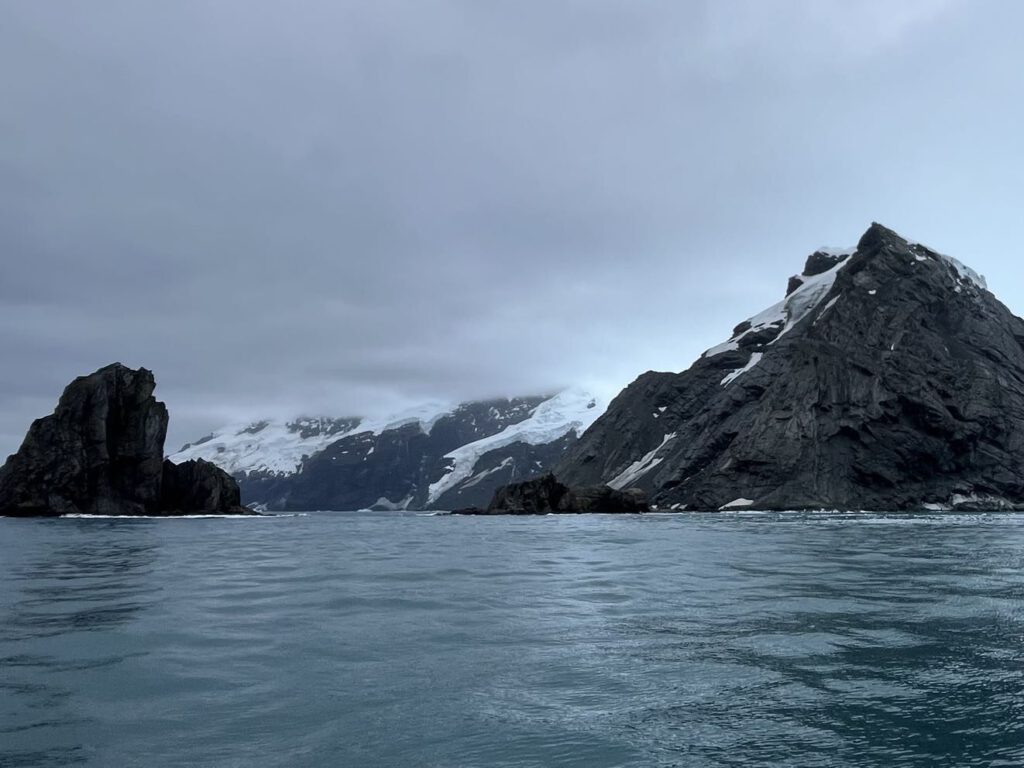
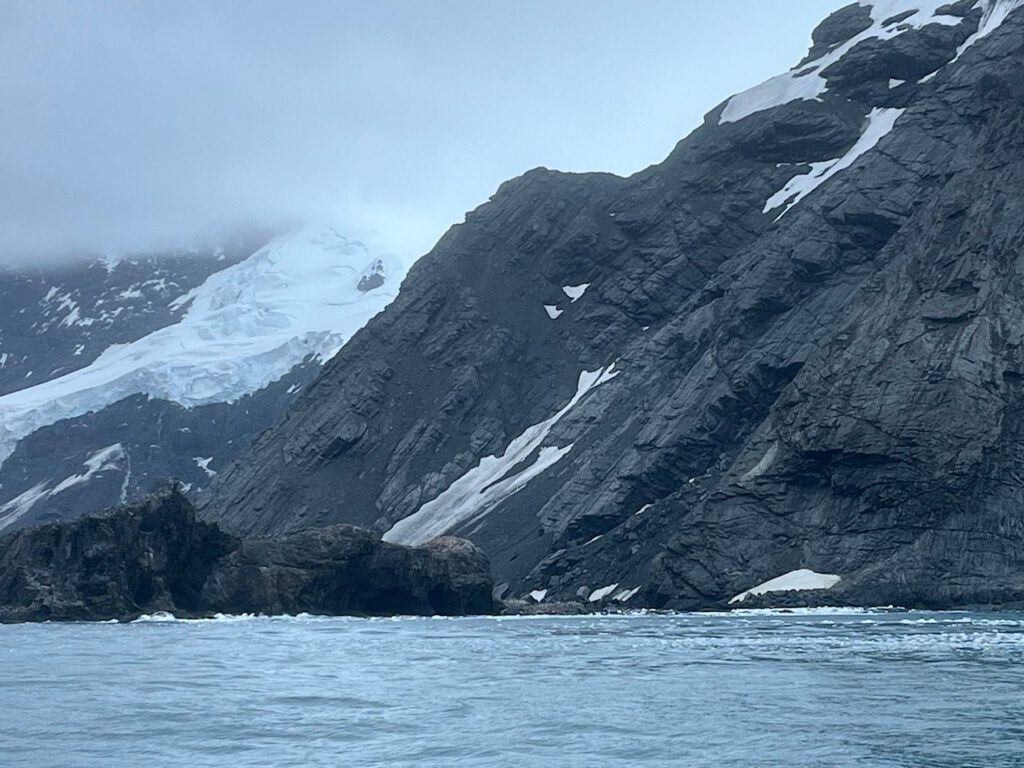
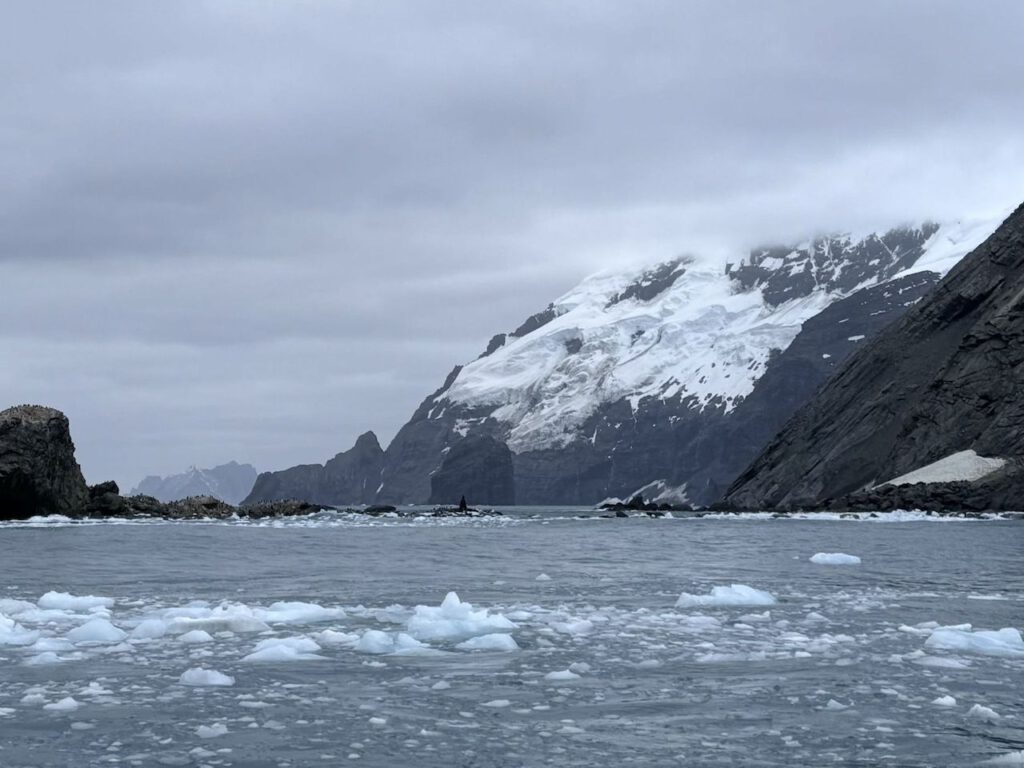
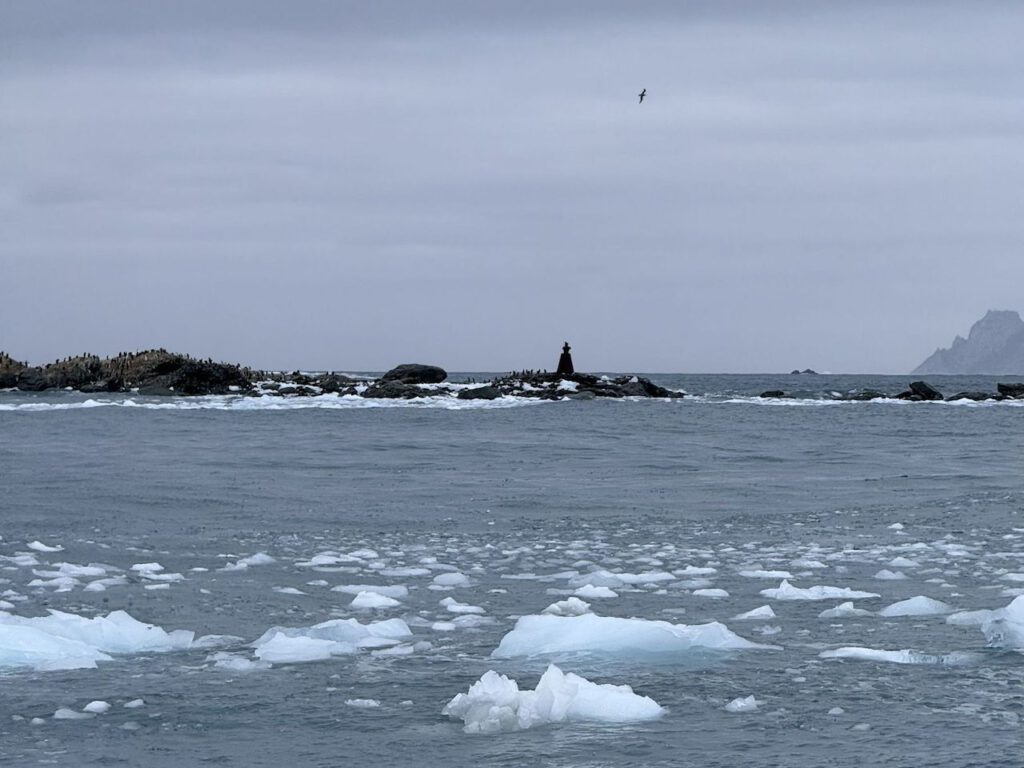
We would have loved not only to have looked out from the deck of the Selma, but also to have set foot on this piece of coastline, to have walked on this historic ground, compared the individual rocks with those in Frank Hurley’s photos, searched for the exact location of the camp… stood there ourselves, felt it … the towering rock face behind us, looking out to sea. Just as the men around Frank Wild had scanned the horizon with their eyes every day for weeks, more than a hundred years ago, until at the end of August, after four long, anxious months of waiting, a ship – the Yelcho, a Chilean navy guard ship – finally and indeed appeared on the horizon. Shackleton was on board and single-handedly took all his remaining expedition members into his care.
The men around Ernest Shackleton always believed in their boss. And he believed that he would succeed in bringing every single one of them home unharmed.
I have long dreamed of and believed in sailing to this place at some point. To find a crew that believes in this idea and that we can make it happen together.
To be here in this place today, to have sailed here with these ten people on the Selma, to have spent the last few weeks on the way here together, to have lived and experienced this moment, to share it now … all of this is an incredible gift and makes me happy and grateful.
It’s obviously not just me. We toast together: to the power of dreaming and believing in something, to Shackleton, to us, to the Selma, to our journey. We share with Neptune and bow our heads in respect to the men of the Endurance.
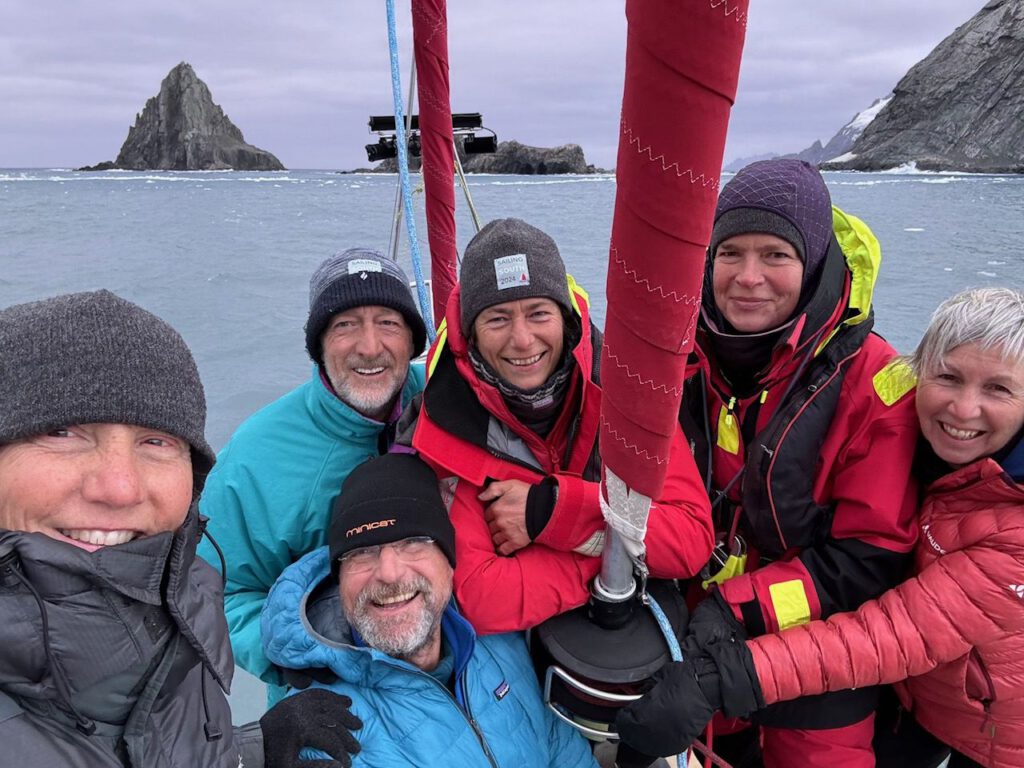
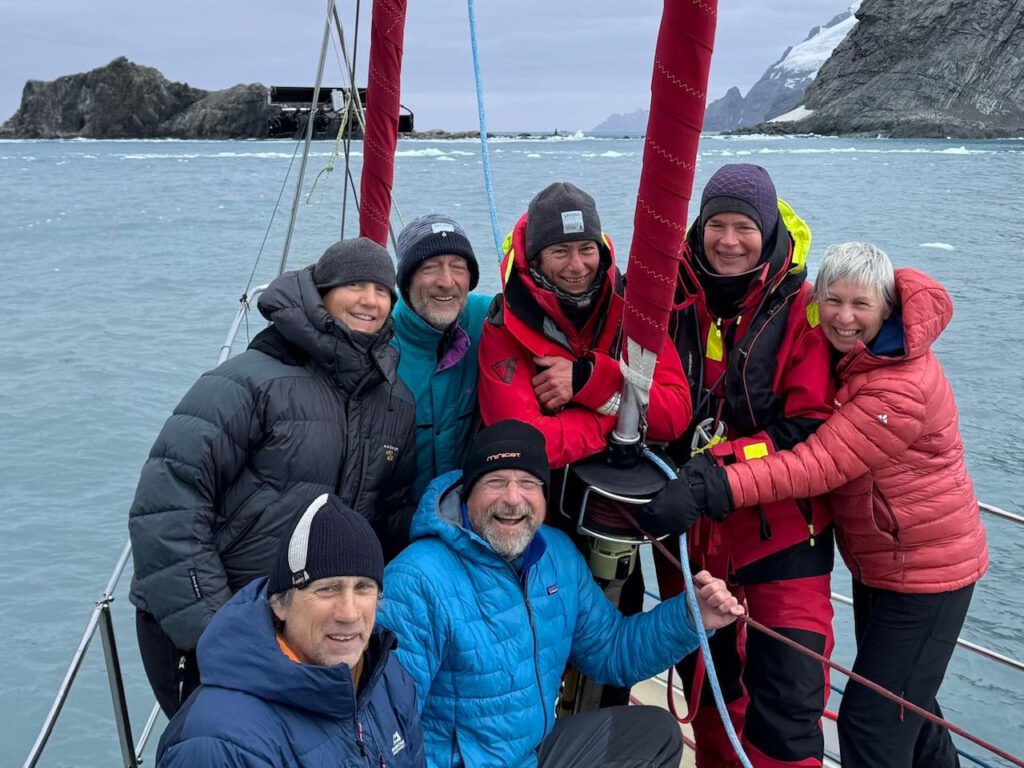
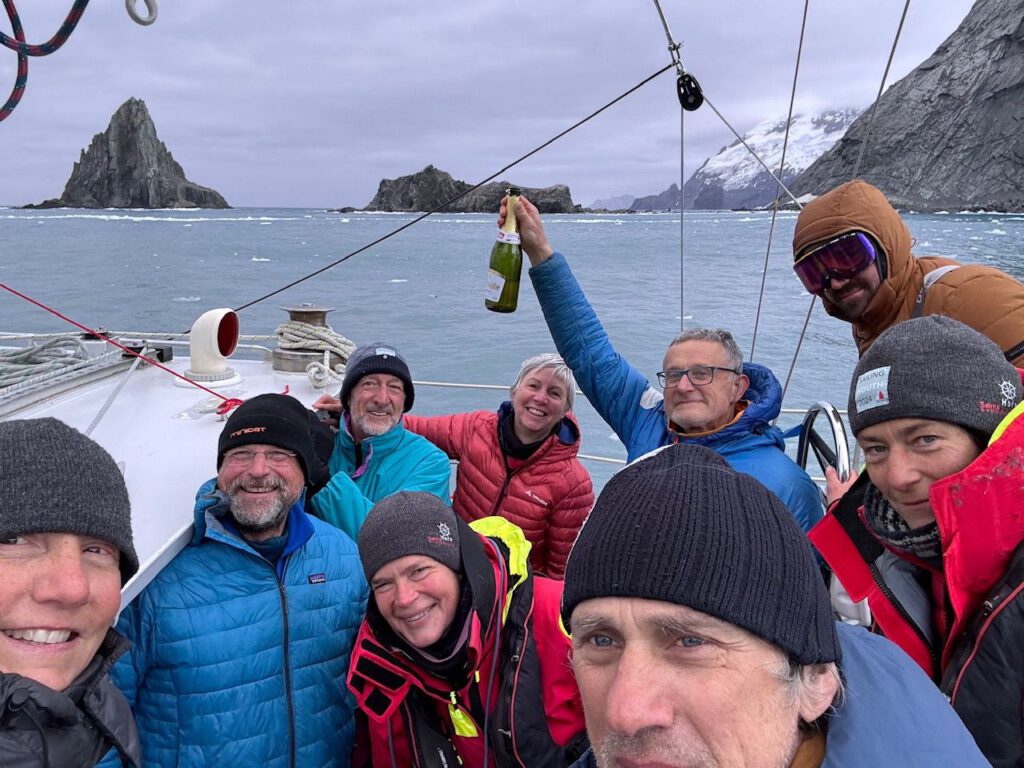
And then we set off, take a last look back at Point Wild and set our course north.
